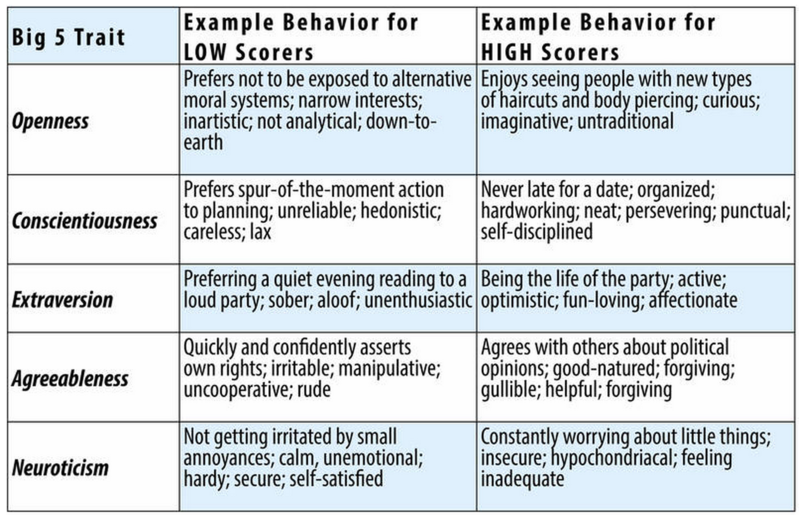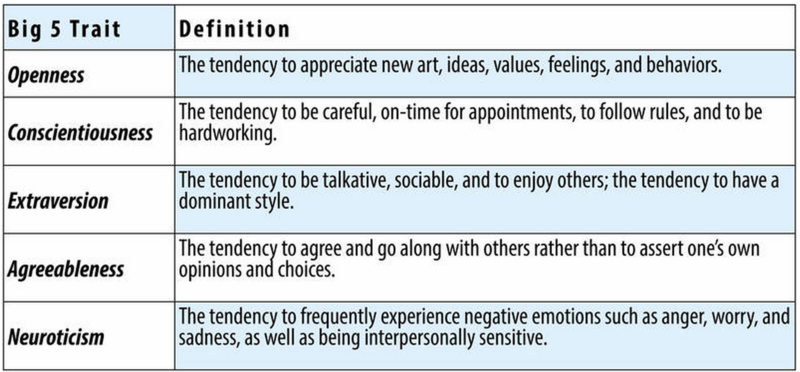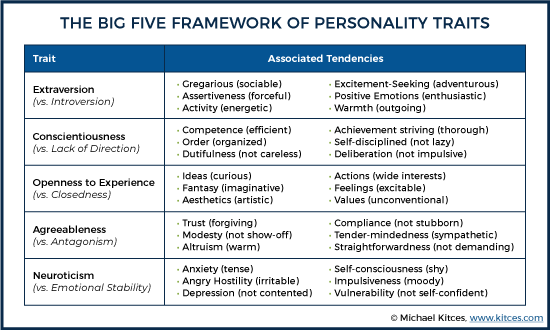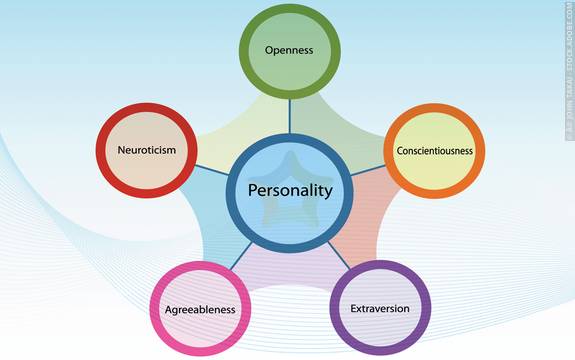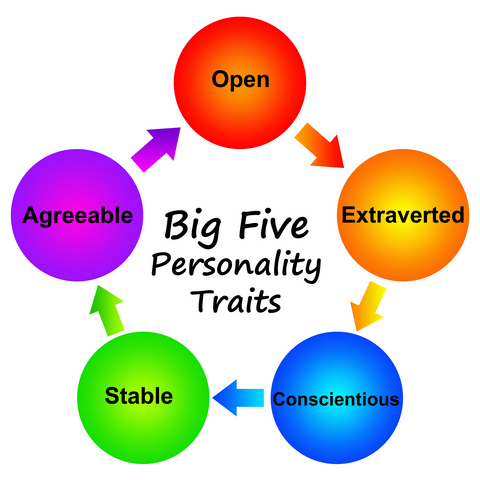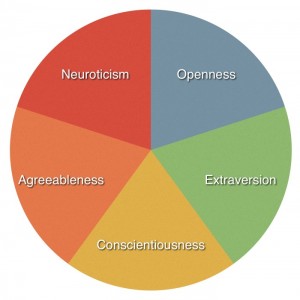Big Five Higher Order Personality Traits In The Study Of Psychology

The big fivetraits usually labeled openness conscientiousness extroversion agreeableness and neuroticism or ocean for short are among the most commonly studied in psychology.
Big five higher order personality traits in the study of psychology. The big five is a theory of personality traits that identifies five distinct factors as central to personality. The big five personality traits the theory describes are openness conscientiousness extroversion agreeableness and neuroticism ocean. The big five personality traits are extraversion also often spelled extroversion agreeableness openness conscientiousness and neuroticism. One of the more popular and recognized systems is called the big five or the big 5 that covers these five core personality traits.
Here s an overview of this ocean model. Neuroticism is one of the big five higher order personality traits in the study of psychology. Individuals who score high on neuroticism are more likely than average to be moody and to experience such feelings as anxiety worry fear anger frustration envy jealousy guilt depressed mood and loneliness. Extraversion the level of sociability and enthusiasm.
Individuals can fall anywhere on the continuum for each trait. The big five personality model also has applications in the study of political psychology. Meta analyses were conducted to identify an 11 11 true score correlation matrix of interest and personality attributes. It has been found by several studies that individuals who score high in conscientiousness are more likely to possess a right wing political identification.
The five broad personality traits described by the theory are extraversion also often spelled extroversion agreeableness openness conscientiousness and neuroticism. Each trait represents a continuum. The differences between people s personalities can be broken down in terms of five major traits often called the big five each one reflects a key part of how a person thinks feels and behaves. Not to be confused with neurosis.
There are many different theories of personality and the trait theories attempt to describe personality as composed of a number of different traits which them influence how people behave.
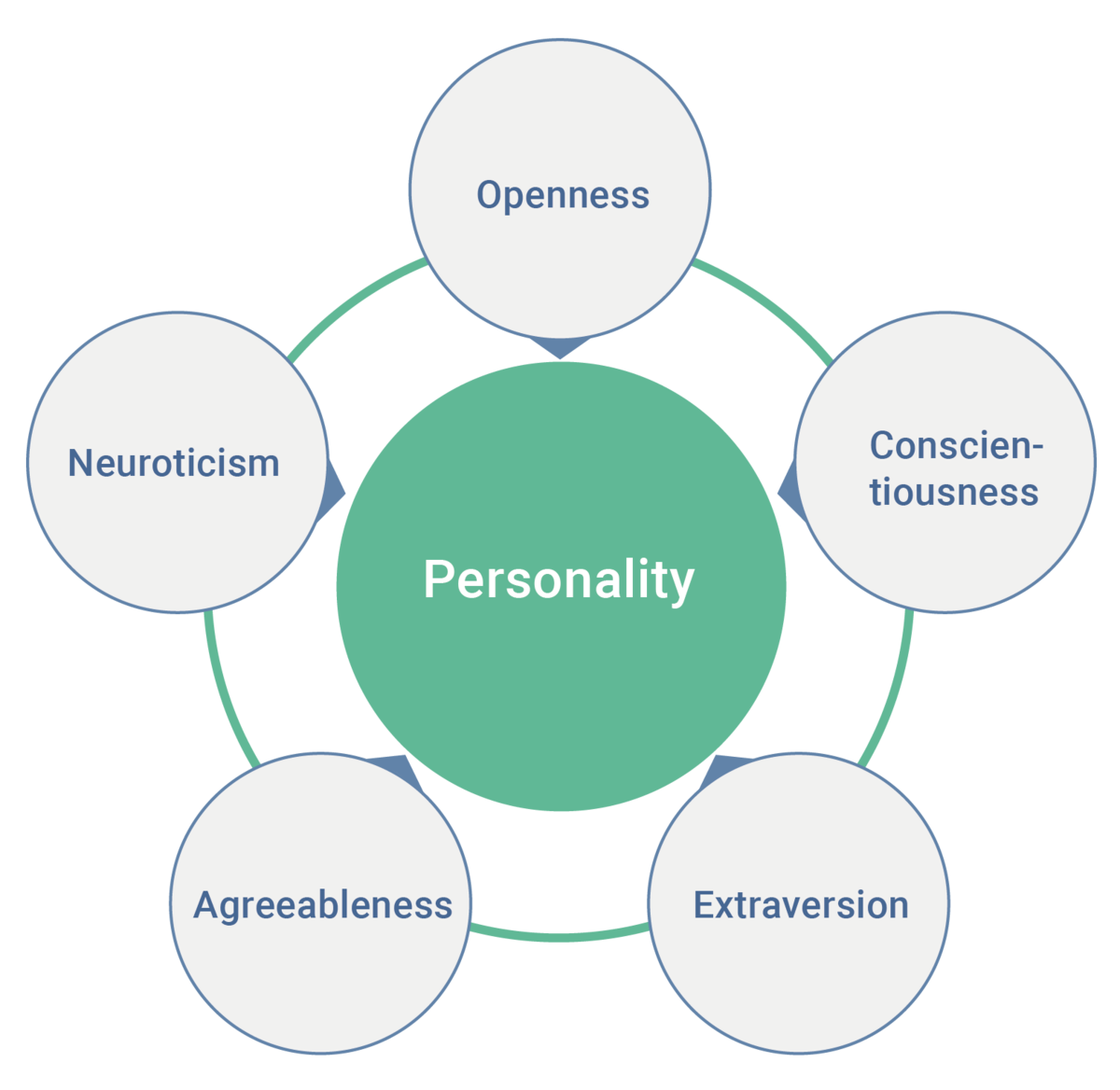
:max_bytes(150000):strip_icc()/2795422-article-the-big-five-personality-dimensions-5a9083fb6edd650036603137.png)

